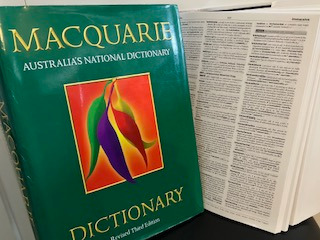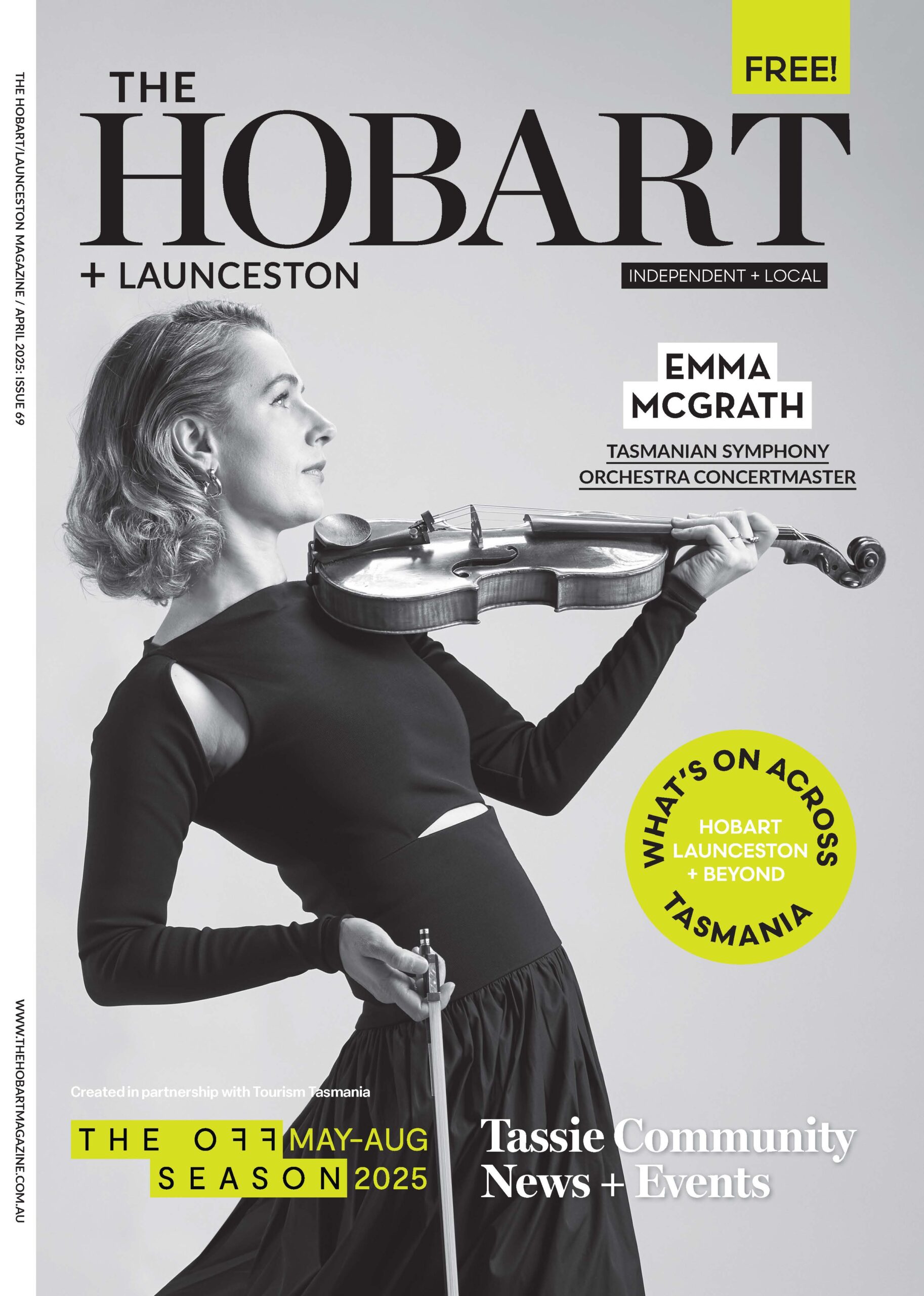2024 Words of the Year
by Amanda Double

“Words, words, words,” as Shakespeare’s stressed-out Hamlet muttered once in response to annoying questioning. But it is words that allow us to communicate most effectively. They can be lyrical and beautifully descriptive, they can be straightforward and to the point or gently revelatory, or they can obfuscate and hide what we really think. Sometimes words expressing exactly what we mean or want to describe don’t seem to even exist. In these cases, we can try borrowing from another language. Or alternatively, we can make up a new word or expression to represent it, or adapt an existing one to add a new meaning. And if these new words or expressions are pounced upon and repeated by enough people (these days especially online), they may be collected by dictionaries to record for prosperity.
Late last year the Macquarie Dictionary and the Australian National Dictionary Centre each announced their Word of the Year for 2024 – a new word and definition which has gained prominence and popularity over the preceding year.
Both dictionaries have been nominating these winning words annually since 2006 (the Macquarie Dictionary began with “muffin top” and the Australian National Dictionary Centre with “podcast” that year). These words not only have linguistic significance but also provide entertaining social commentary, reflecting and highlighting the pressing issues of our time, and revealing what our fellow Australians are most focussed on or concerned about.
The Macquarie Dictionary calls together a Committee to select a longlist and then final shortlist, with the public also invited to vote to select the People’s Choice Word of the Year. This year the Committee have felt the need to issue a language warning, pointing out that “the Macquarie Dictionary acknowledges all forms and registers of Australian English, which occasionally includes taboo words and meanings.” Because this year, the chosen word is a colloquial noun (coined in 2022 by Canadian author Cory Doctorow) that colourfully yet somehow perfectly encapsulates how many of us have been feeling lately: “enshittification”! That is, “the gradual deterioration of a service or product brought about by a reduction in the quality of service provided, especially of an online platform, and as a consequence of profit-seeking.” The public – and I was one of them – voted for this word as the People’s Choice as well, enjoying its irreverence. And as the Committee points out, it’s a “very basic Anglo-Saxon term wrapped in affixes which elevate it to being almost formal; almost respectable. This word captures what many of us feel is happening to the world and to so many aspects of our lives at the moment.”
The two Committee Honourable Mentions were “right to disconnect” or RTD (“a law which grants employees the right to not work or be contacted about work during non-work hours”), and “rawdogging” (“the act of undertaking a long flight with no electronic entertainment, devices or reading material”), a kind of endurance test, with the word also being extended to apply to other aspects of modern life as well. The People’s Choice Honourable Mentions went to “brain rot” (“content on social media platforms viewed for an extended duration, which is considered to be of low quality in terms of intellectual stimulation”), and “social battery” (“a supposed energy reserve a person has in order to engage in social interactions, the reserve being depleted or stimulated depending on the situation”).
Interestingly, “brain rot” was also the term chosen some weeks later in England as the Oxford Word of the Year for 2024. Oxford University Press defined it as “the supposed deterioration of a person’s mental or intellectual state, especially viewed as the result of overconsumption of material (now particularly online content) considered to be trivial or unchallenging. Also: something characterized as likely to lead to such deterioration”. And it revealed that although the term increased in usage frequency throughout 2024, its first recorded use was actually in 1854 by Henry David Thoreau in his book Walden, in which he documented living a simple but more meaningful life in the natural world.
The Australian National University’s Australian National Dictionary Centre (which provides editorial expertise to Oxford University Press for their Australian dictionaries) chose a completely different word as its Word of the Year: “Colesworth”. This is a blended word (or portmanteau) “used in reference to the perceived duopoly of Australia’s largest supermarket retailers, Coles and Woolworths”. Mark Gwynn, Senior Researcher at the Dictionary Centre, explained that although the word has been around for several years, “its usage only recently spiked as ordinary Australians vented their frustration at the increasing prices of food staples and dodgy pricing practices.” The blending of supermarket names Coles and Woolworths into Colesworth “provides a succinct way of referring to both supermarkets while at the same time hinting at the negative aspects of what is perceived as an unfair duopoly.”
Words are important. The coining of new words and definitions is a fun way for us to say something about what is happening in our lives. Some words may disappear from usage within a few years, while others will stand the test of time and permanently enter our lexicon, or even reappear years later. Esteemed Australian novelist Marcus Zusak spoke truly when he said: “The best word shakers were the ones who understood the true power of words. They were the ones who could climb the highest.”

